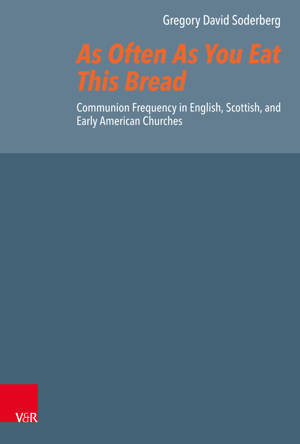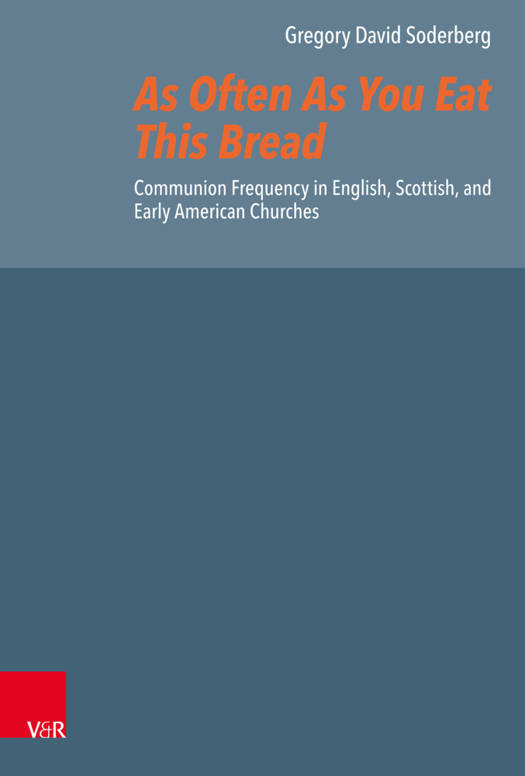
- Afhalen na 1 uur in een winkel met voorraad
- Gratis thuislevering in België vanaf € 30
- Ruim aanbod met 7 miljoen producten
- Afhalen na 1 uur in een winkel met voorraad
- Gratis thuislevering in België vanaf € 30
- Ruim aanbod met 7 miljoen producten
Zoeken
As Often as You Eat This Bread
Communion Frequency in English, Scottish, and Early American Churches
Gregory David Soderberg
€ 118,45
+ 236 punten
Omschrijving
Why can't Christians agree about communion? Why is it that in some churches all worship services culminate in a holy meal whereas other churches celebrate this "holy supper" only once in a while? Theologian Gregory Soderberg has researched this question, excavating patterns of communion frequency within one of the bigger Christian families: the Reformed tradition. Despite being the sacrament of unity, the eucharist has often been a cause of strife in Christian churches.In his study, Gregory David Soderberg is the first to focus in depth on communion frequency in the Reformed tradition. He concludes that, although the 16th century Reformers desired more frequent communion, this was balanced by their desire to create mature Christian communities. So, preachers and church leaders stressed the priority of moral conduct and the importance of understanding what the eucharist meant for Protestants. The study analyses sources from the very beginnings of this tradition in 16th century Zurich and Geneva, and it follows its trajectories through England and Scotland all the way down to 19th century USA. Ultimately, it is hoped that understanding the polemics of the past will help churches today to celebrate the sacrament of unity more meaningfully.
Specificaties
Betrokkenen
- Auteur(s):
- Uitgeverij:
Inhoud
- Aantal bladzijden:
- 280
- Taal:
- Engels
- Reeks:
- Reeksnummer:
- nr. 74
Eigenschappen
- Productcode (EAN):
- 9783525560709
- Verschijningsdatum:
- 14/11/2022
- Uitvoering:
- Hardcover
- Formaat:
- Genaaid
- Afmetingen:
- 155 mm x 231 mm
- Gewicht:
- 3166 g

Alleen bij Standaard Boekhandel
+ 236 punten op je klantenkaart van Standaard Boekhandel
Beoordelingen
We publiceren alleen reviews die voldoen aan de voorwaarden voor reviews. Bekijk onze voorwaarden voor reviews.











